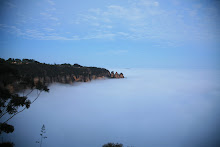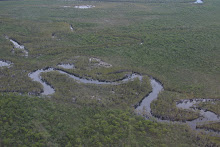
By Rich Bowden
Img: Australian Foreign Minister Stephen Smith. Credit: US Dept of Defence
The diplomatic fallout between China and Australia continues to grow with Australian authorities denied access to detained Rio Tinto executive Stern Hu and questions being raised as to whether the dramatic arrest is a "payback" by Chinese authorities over a failed state-owned mining company's bid for the mining giant.
Mr Hu and three of his associates were detained in Shanghai on Sunday and charged with attempting to steal Chinese state secrets. Consular officials have been denied access to the Australian Mr Hu until today and Foreign Minister Steven Smith expressed clear signs of frustration when he told the media of his department's attempts to glean information from Chinese authorities.
"I would have of course much preferred that this information would have been given to us much earlier, through official diplomatic channels," he said, claiming he was made aware of the charges through the Chinese media.
The ABC quoted Mr Smith as saying an official Chinese statement posted on a government website claims that during iron ore negotiations this year Mr Hu, "gathered and stole state secrets from China via illegal means, including bribing internal staff of Chinese steel companies."
Mr Smith explained that "The Chinese state and the Chinese authorities take a much broader view of what state secrets or national security might be than, for example, Australia or other nations might."
"It's very hard for the Australian Government to frankly see the connection between what might be daily commercial negotiations or matters and national security issues," reported the ABC.
"But when you look and reflect upon the statements as I have this morning it's quite clear they are proceeding on the basis of possible criminal charges... arising as a result of commercial or economic negotiations."
The affair has touched off claims that the detention of Mr Hu is a "payback" from the recent failure of Chinese-owned Chinalco mining company to purchase an 18 percent claim in Rio Tinto.
Rio executives turned down the $US19.5 billion ($A24.89 billion) Chinalco bid in favour of an extension of a deal with rival BHP Billiton.
The Australian Nationals leader in the Senate, Barnaby Joyce gave voice to this theory earlier this week.
"We know that we're failing to get proper diplomatic access to them, to Mr Stern Hu, and what we can deduct is that there'd have to be a relationship between Chinalco's failure in its purchase of Rio and the ramifications that go beyond a state-owned enterprise all the way to the Chinese Government," he told the PM program on July 8.
"All investments overseas go through a central organising authority to where they're going to purchase overseas and that the disappearance of the four people - one of whom is an Australian citizen - if it's nothing to do with Rio, then why can't we get diplomatic access to them and find out exactly what's going on?" he asked.
However a statement by Chinalco today denied the arrests had anything to do with the failed bid, saying it was sympathetic to the executives' plight. The company also denied earlier media reports that it had been critical of Rio Tinto.
“Chinalco has been in contact with Rio Tinto expressing our mutual concern for the current situation with their staff,” a statement released today said, adding that earlier statements attributed tovice-president Lu Youqing criticising Rio Tinto executives were misquoted.
“These comments were incorrectly reported and do not reflect the company’s view,” the release added.
Prime Minister Kevin Rudd has said he will consider making personal representations on behalf of the executives.
Img: Australian Foreign Minister Stephen Smith. Credit: US Dept of Defence
The diplomatic fallout between China and Australia continues to grow with Australian authorities denied access to detained Rio Tinto executive Stern Hu and questions being raised as to whether the dramatic arrest is a "payback" by Chinese authorities over a failed state-owned mining company's bid for the mining giant.
Mr Hu and three of his associates were detained in Shanghai on Sunday and charged with attempting to steal Chinese state secrets. Consular officials have been denied access to the Australian Mr Hu until today and Foreign Minister Steven Smith expressed clear signs of frustration when he told the media of his department's attempts to glean information from Chinese authorities.
"I would have of course much preferred that this information would have been given to us much earlier, through official diplomatic channels," he said, claiming he was made aware of the charges through the Chinese media.
The ABC quoted Mr Smith as saying an official Chinese statement posted on a government website claims that during iron ore negotiations this year Mr Hu, "gathered and stole state secrets from China via illegal means, including bribing internal staff of Chinese steel companies."
Mr Smith explained that "The Chinese state and the Chinese authorities take a much broader view of what state secrets or national security might be than, for example, Australia or other nations might."
"It's very hard for the Australian Government to frankly see the connection between what might be daily commercial negotiations or matters and national security issues," reported the ABC.
"But when you look and reflect upon the statements as I have this morning it's quite clear they are proceeding on the basis of possible criminal charges... arising as a result of commercial or economic negotiations."
The affair has touched off claims that the detention of Mr Hu is a "payback" from the recent failure of Chinese-owned Chinalco mining company to purchase an 18 percent claim in Rio Tinto.
Rio executives turned down the $US19.5 billion ($A24.89 billion) Chinalco bid in favour of an extension of a deal with rival BHP Billiton.
The Australian Nationals leader in the Senate, Barnaby Joyce gave voice to this theory earlier this week.
"We know that we're failing to get proper diplomatic access to them, to Mr Stern Hu, and what we can deduct is that there'd have to be a relationship between Chinalco's failure in its purchase of Rio and the ramifications that go beyond a state-owned enterprise all the way to the Chinese Government," he told the PM program on July 8.
"All investments overseas go through a central organising authority to where they're going to purchase overseas and that the disappearance of the four people - one of whom is an Australian citizen - if it's nothing to do with Rio, then why can't we get diplomatic access to them and find out exactly what's going on?" he asked.
However a statement by Chinalco today denied the arrests had anything to do with the failed bid, saying it was sympathetic to the executives' plight. The company also denied earlier media reports that it had been critical of Rio Tinto.
“Chinalco has been in contact with Rio Tinto expressing our mutual concern for the current situation with their staff,” a statement released today said, adding that earlier statements attributed tovice-president Lu Youqing criticising Rio Tinto executives were misquoted.
“These comments were incorrectly reported and do not reflect the company’s view,” the release added.
Prime Minister Kevin Rudd has said he will consider making personal representations on behalf of the executives.




.jpg)

.jpg)
No comments:
Post a Comment